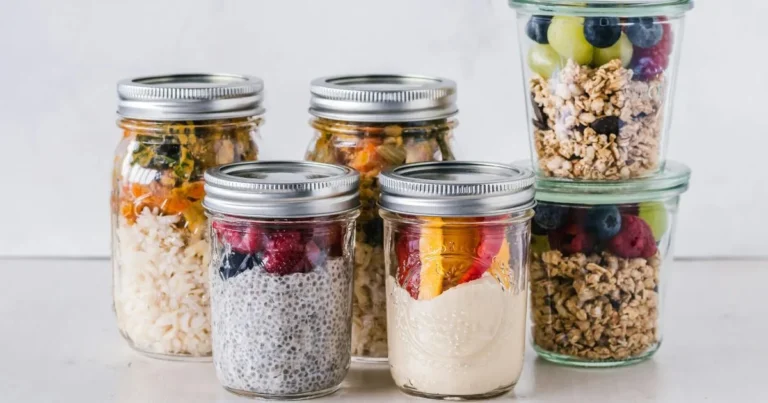7 Daily Calorie Intake Discover the Perfect Calories Should Eat Per Day
Have you ever felt overwhelmed by the myriad of diet advice, conflicting opinions, and calorie counting apps? You’re not alone. Many people wrestle with questions about their daily calorie needs, wondering if they’re eating too much or too little to meet their goals. This article is here to guide you on a journey of discovery—a journey that not only demystifies the science behind calories but also offers practical, personalized advice on how many calories you should eat per day. By understanding your daily calorie intake, you empower yourself to make informed decisions that align with your lifestyle, health, and weight goals.
Table of Contents
Understanding Daily Calorie Intake
Before diving into the details, it’s essential to grasp what calories actually represent and why they are central to your nutrition strategy.
What Is a Calorie?
At its core, a calorie is simply a unit of energy. Every morsel of food you eat provides you with energy—energy that fuels your body’s countless processes, from maintaining vital organ functions to powering your workouts. When you consume food, your body converts it into energy, and the amount of energy you receive is measured in calories.
- Energy for Life: Think of calories as the fuel that keeps your engine running. Just like a car needs the right amount of fuel to operate efficiently, your body requires a balanced intake of calories to function optimally.
- Nutrient Interplay: It isn’t just about the numbers. The quality of the calories matters too. Whole foods that provide a balanced mix of carbohydrates, proteins, and fats offer not only energy but also essential nutrients.
Why Daily Calorie Intake Matters
Understanding and managing your daily calorie intake is more than a numbers game—it’s about aligning your food consumption with your lifestyle and goals.
- Weight Management: Whether your aim is to lose weight, maintain your current figure, or even gain weight, knowing how many calories you need is crucial. Too many calories might lead to unwanted weight gain, while too few can cause fatigue and nutrient deficiencies.
- Energy Levels: Eating the right amount of calories can help stabilize your energy levels throughout the day. When you eat in line with your body’s needs, you’re more likely to experience consistent energy, fewer mood swings, and better overall productivity.
- Long-Term Health: Over time, consistently misaligned calorie intake—whether excessive or insufficient—can affect your metabolism, hormonal balance, and overall well-being.
Factors Influencing Your Daily Calorie Needs
Your daily calorie needs are unique, and several factors contribute to the variability from one person to another. Here are the main aspects you should consider:
- Age & Gender: Generally, men and younger people tend to have higher calorie needs than women and older individuals due to differences in muscle mass and metabolic rate.
- Body Composition: If you have a higher muscle mass, your body burns more calories even at rest compared to someone with a higher percentage of body fat.
- Physical Activity Level: The more active you are, the more calories you burn. Your job, hobbies, and exercise habits all factor into your overall energy expenditure.
- Health Conditions: Underlying health conditions, hormonal imbalances, or metabolic disorders can alter your calorie needs.
Basal Metabolic Rate (BMR)
Your Basal Metabolic Rate (BMR) represents the number of calories your body needs at rest to maintain vital functions such as breathing, circulation, and cell production. It accounts for a significant portion of your daily calorie expenditure.
- Why BMR Matters: Knowing your BMR gives you a baseline for understanding your body’s minimum calorie requirement. From here, you can adjust your intake based on additional physical activity.
- How to Estimate BMR: You can use various formulas—like the Harris-Benedict or Mifflin-St Jeor Equation—to calculate your BMR. Many online calculators can do this for you after you input your age, gender, weight, and height.
Activity Level and Lifestyle
Not all calories are created equal when it comes to activity. Your lifestyle plays a crucial role in determining your overall calorie needs.
- Sedentary vs. Active: A sedentary lifestyle, characterized by little to no physical activity, requires fewer calories. In contrast, if you’re regularly active or have a physically demanding job, your calorie needs will be higher.
- Daily Movement: Small bursts of physical activity, like taking the stairs or walking during breaks, also add up and can influence your daily energy expenditure.
- Structured Exercise: Regular workouts, be they cardio or strength training, significantly boost your calorie burn and should be factored into your overall intake.
Calculating Your Daily Calorie Needs
Knowing how many calories you need doesn’t have to be guesswork. With a few straightforward calculations, you can create a personalized estimate that aligns with your goals.
Step-by-Step Guide to Estimate Your Calorie Needs
- Calculate Your BMR:
- Use an online calculator or formulas like Harris-Benedict or Mifflin-St Jeor.
- Input your age, gender, weight, and height to get your BMR.
- Determine Your Activity Factor:
- Evaluate your daily activity level:
- Sedentary: Little or no exercise.
- Moderately Active: Some exercise or physical activity during the week.
- Very Active: Daily exercise or a physically demanding job.
- Evaluate your daily activity level:
- Multiply BMR by Activity Factor:
- Multiply your BMR by the corresponding activity multiplier (ranging from 1.2 for sedentary to around 1.725 or more for very active individuals) to get your total daily calorie needs.
Online Tools and Resources
You don’t have to do all the math by hand. There are numerous reliable online tools and apps that can help you calculate your daily calorie requirements accurately. Simply search for “daily calorie calculator” or “BMR calculator” to find trusted resources like those offered by health organizations and fitness experts.
Adjusting for Your Goals
Once you’ve established your baseline calorie needs, you can adjust your intake depending on your specific objectives.
- For Weight Loss: Aim for a slight calorie deficit. A reduction of 500 calories per day is often recommended for a gradual, sustainable weight loss.
- For Weight Gain: Increase your calorie intake to create a surplus. Focus on nutrient-dense foods to ensure you gain muscle rather than fat.
- For Maintenance: Stick closely to your calculated needs to maintain your current weight while keeping your energy levels steady.
Meal Planning for Optimal Calorie Intake
Knowing how many calories you need is one thing—but ensuring you meet those needs with the right nutrients is another. Effective meal planning can make all the difference.
The Importance of a Balanced Diet
Your meals should be more than just calorie counts; they should nourish your body with the nutrients it needs.
- Nutrient Variety: Aim to incorporate a diverse range of foods that offer proteins, carbohydrates, fats, vitamins, and minerals.
- Portion Control: Even with healthy foods, portion sizes matter. Keeping your servings in check helps you maintain your calorie balance.
- Mindful Eating: Paying attention to your hunger and satiety cues can prevent overeating and help you develop a healthier relationship with food.
Sample Meal Plans
Consider this sample structure to get a sense of what balanced, calorie-appropriate meals might look like:
- Breakfast:
- Oatmeal with fresh berries and a dollop of Greek yogurt
- Whole-grain toast with avocado spread
- Lunch:
- Grilled chicken salad with mixed greens, cherry tomatoes, cucumbers, and a vinaigrette dressing
- A side of quinoa or brown rice
- Snack:
- A piece of fruit or a handful of nuts
- Dinner:
- Baked salmon or tofu with steamed broccoli, carrots, and a serving of sweet potatoes
- A small side salad with olive oil dressing
- Hydration:
- Drink water consistently throughout the day to support metabolic processes and overall health.
Tracking Your Intake
To stay on top of your daily calorie consumption, consider using apps like MyFitnessPal, Lose It!, or Cronometer. These tools can help you log your meals, track your calories, and even provide insights into your macronutrient distribution.
- Bullet List for Effective Tracking:
- Set a Daily Goal: Input your personalized calorie target.
- Log Every Meal: Even small snacks count.
- Monitor Trends: Use the data to adjust portion sizes or food choices as needed.
- Review Regularly: Reflect on your progress weekly to identify patterns and make informed tweaks.
Exercise, Lifestyle, and Calorie Management
Your daily calorie needs are influenced not only by what you eat but also by how much you move. Integrating exercise with smart calorie management can lead to more sustainable results.
The Role of Exercise
Regular physical activity is a critical piece of the puzzle. When you exercise, your body burns additional calories, which can help create a balance if you’re trying to lose, gain, or maintain weight.
- Types of Exercise:
- Cardio: Running, cycling, swimming—great for boosting your calorie burn and improving cardiovascular health.
- Strength Training: Lifting weights or bodyweight exercises help build muscle, which in turn increases your metabolic rate.
- Flexibility and Balance: Activities like yoga or pilates, while not high calorie burners, improve overall fitness and complement other forms of exercise.
Integrating Exercise with Nutrition
It’s essential to ensure that your calorie intake supports your exercise regimen.
- Before a Workout:
- Choose a light, balanced snack that provides quick energy, such as a banana with a small spoon of peanut butter.
- After a Workout:
- Focus on recovery with a meal that includes proteins and carbohydrates to replenish energy stores and repair muscle tissue.
- Listen to Your Body:
- Adjust your calorie intake on days when your workout is more intense, and don’t be afraid to eat a bit more when you’re fueling extra activity.
Lifestyle Adjustments for Better Calorie Management
Beyond structured workouts, consider integrating more movement into your daily routine.
- Stay Active Throughout the Day:
- Take short walks during breaks, opt for stairs instead of elevators, and consider standing desks if possible.
- Rest and Recovery:
- Ensure you get enough sleep, as a well-rested body burns calories more efficiently and recovers better from physical exertion.
- Mindset Matters:
- Embrace a holistic view of health, where nutrition, exercise, and mental well-being support one another.
Debunking Common Myths About Calorie Counting
When it comes to counting calories, you might have encountered a host of myths that can derail your efforts. Let’s set the record straight with evidence-backed clarifications.
Myth 1: “All Calories Are Equal”
- Reality Check:
- While a calorie is a unit of energy, the source of that calorie matters. Nutrient-dense foods provide vitamins, minerals, and fiber that processed foods might lack.
- Key Takeaway:
- Focus on whole, minimally processed foods to ensure your calories contribute positively to your overall health.
Myth 2: “If You Stay Within Your Calorie Limit, You Can Eat Anything”
- Reality Check:
- Not all foods are created equal in terms of nutrition. Even if you’re within your daily calorie target, a diet high in sugar and processed fats can negatively impact your health.
- Key Takeaway:
- Balance your calorie intake with nutrient-rich foods that offer both energy and essential nutrients.
Myth 3: “Extreme Calorie Restriction Is the Best Way to Lose Weight”
- Reality Check:
- Severely restricting calories can lead to muscle loss, slowed metabolism, and nutrient deficiencies. Long-term weight loss and maintenance thrive on balance rather than extreme measures.
- Key Takeaway:
- Aim for a sustainable calorie deficit that supports gradual weight loss while keeping you energized and healthy.
Frequently Asked Questions (FAQ) About Daily Calorie Intake
Here are some common questions that can help you fine-tune your approach to daily calorie intake.
What Is the Recommended Daily Calorie Intake for an Average Adult?
- Answer:
- The recommended intake typically ranges between 1,800 to 2,400 calories per day for women and 2,200 to 3,000 calories for men. However, your personal needs depend on factors such as age, activity level, and metabolic health.
- Tip:
- Use an online calculator to get a more precise number tailored to your situation.
How Does Age Affect Your Daily Calorie Intake?
- Answer:
- As you age, your metabolism naturally slows down, often leading to a decrease in calorie needs. This means you might require fewer calories than you did in your younger years.
- Tip:
- Adjust your calorie intake gradually as your lifestyle and metabolic rate change over time.
Can I Lose Weight Without Counting Calories?
- Answer:
- While it’s possible to lose weight through mindful eating, portion control, and focusing on whole foods, tracking your calories provides a clearer picture of your energy balance. It’s all about finding a method that suits your personal style.
- Tip:
- Experiment with intuitive eating while occasionally checking in with a calorie tracker to ensure you’re aligned with your goals.
What Role Does Exercise Play in Determining My Daily Calorie Intake?
- Answer:
- Exercise significantly influences your calorie needs. The more active you are, the more calories you burn, which means you may need to adjust your intake to accommodate your physical activity levels.
- Tip:
- Monitor your workout intensity and duration, and adjust your calorie goals accordingly using fitness apps or a nutritionist’s guidance.
Conclusion
Understanding how many calories you should eat per day is a personal journey—one that combines science, lifestyle, and a keen awareness of your own body’s needs. When you align your daily calorie intake with your activity level, nutritional goals, and overall well-being, you’re setting yourself up for success. By incorporating balanced meal planning, a mix of physical activity, and a focus on whole, nutrient-dense foods, you can achieve a sustainable and fulfilling approach to your health.
Final Thoughts
- Empower Yourself:
- By understanding the science behind calories and tailoring your intake, you can make empowered decisions that benefit your body and mind.
- Stay Informed:
- Keep up with the latest research, listen to your body, and be open to adjusting your plan as your lifestyle and goals evolve.
- Take Action:
- Whether you’re beginning your weight loss journey, looking to maintain your current fitness level, or planning to build muscle, start by calculating your personal calorie needs today.
Next Steps
- Evaluate Your Current Habits:
- Take a few moments to reflect on your eating and exercise habits. Are you in tune with your body’s needs?
- Set Realistic Goals:
- Whether it’s shedding a few pounds or maintaining your energy levels, set achievable targets that motivate you.
- Engage With a Community:
- Share your journey with friends, join online health forums, or consult a nutrition expert to get personalized advice.
Call-to-Action
Now that you have a clear roadmap to understanding your daily calorie intake, it’s time to take action. Start by calculating your Basal Metabolic Rate using one of the many reliable online tools. Then, adjust your daily intake based on your activity level and personal goals. Remember, every step you take towards a balanced approach to nutrition is a step toward a healthier, more energetic you.
If you’re ready to embark on this journey and want more tips, advice, or a personalized plan, subscribe to our newsletter, join our online community, or consult with a certified nutritionist. Your path to a healthier lifestyle starts with one mindful choice—make that choice today!
By taking control of your daily calorie intake and understanding how it affects every aspect of your life—from your energy levels to your long-term health—you’re not just counting calories; you’re investing in yourself. Use the information in this article as a guide to make informed, sustainable choices that match your unique needs and aspirations.
Remember, every calorie you consume is a building block for your future health. So, embrace the power of knowledge, plan your meals with care, integrate regular physical activity, and above all, listen to your body. Your journey to balanced health and optimal well-being is uniquely yours—start crafting it today!
This comprehensive guide has covered everything you need to know about daily calorie intake, from the basic science of calories to practical meal planning and debunking common myths. With these insights, you’re now equipped to fine-tune your nutrition strategy, ensuring that every meal you enjoy contributes to a healthier, happier you.
By putting these strategies into practice, you’ll not only meet your daily calorie needs but also foster a sustainable, balanced lifestyle that supports both your short-term goals and long-term wellness. Don’t wait—dive into the world of mindful nutrition and see the positive impact it can have on your life.




